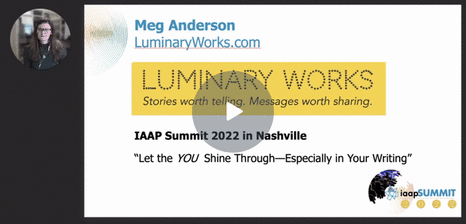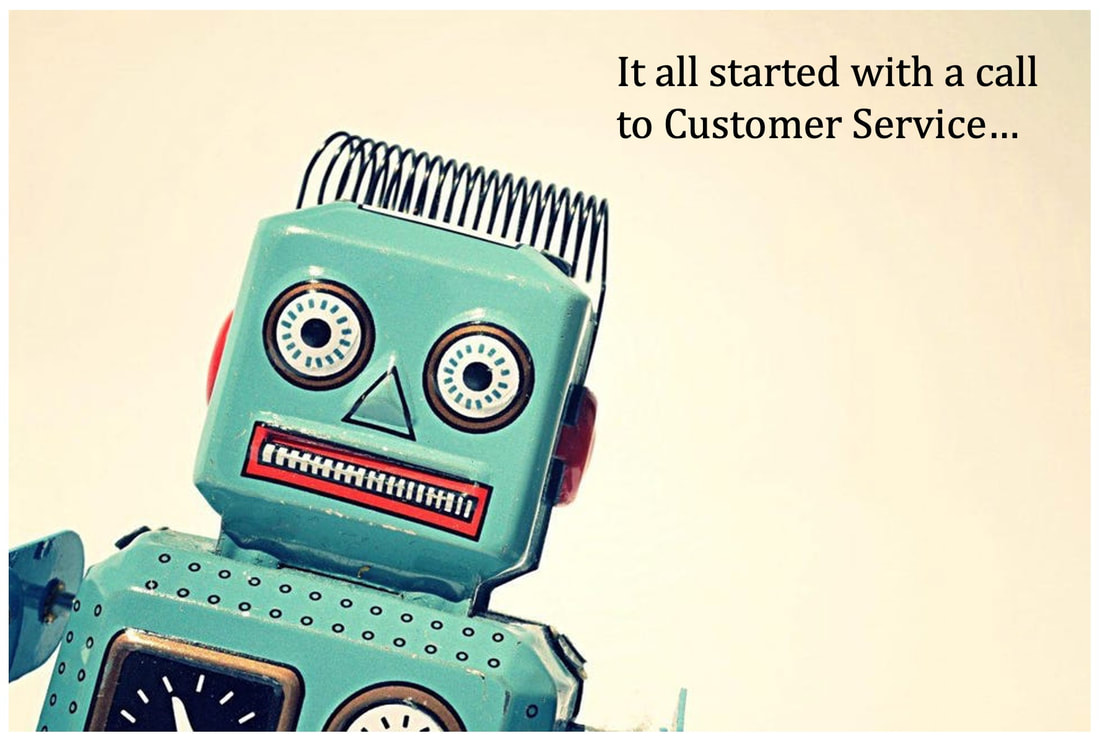|
What's the Platinum-Gold Rule? Never heard of it? I hadn’t either until I ran across a blog post from Career Contessa, and it gave me a great idea! You’ve probably heard of the Golden Rule: Do unto others as you would have them do unto you. The Platinum Rule, Career Contessa explains, says to: Do unto others as they would want to be done to them. Learn more about how you can take it one step further with the Platinum-Gold Rule. Check out my video below. We'll be talking more about this and lots more at IAAP Summit 2022 in Nashville this July. If you can't see the video embedded above, just click here! Technology...
A recent customer service experience resulted in a light-bulb moment for me. In fact, it was the impetus behind the idea for my IAAP Summit 2022 presentation coming up in July: “Let the YOU Shine Through – Especially In Your Writing.”
Just imagine – I had called customer service for help with rescheduling an appointment. I pressed a number after listening to the prompts. I was asked to state my name and birthdate. I did. And then there was a pause. A really long pause. I started to wonder if maybe this wasn’t an automated system. Was it a real person on the other end? It hadn’t sounded like it, but then I thought I heard breathing on the other end of the line. I asked, “Hello?” A voice replied – still in a very neutral tone and pitch, “I’m still pulling up your account.” Human? Or robot? I still wasn’t sure. So I asked, “Is this a real person?” Then this woman (sort of) came to life – “Oh yes! I’m sorry the system is being so slow.” I was so embarrassed – and yet about to burst out laughing hysterically. I thought I had been on the phone with an automated system the whole time! The fact that she wasn’t a robot made the woman’s tone of voice even more surprising. Y’all, this was in my home state of MISSISSIPPI – our accents are anything but neutral! I apologized to the woman for being so brusque earlier and wished her a great day as we quickly sorted out my issue. The experience left me thinking – and laughing pretty hard, I must admit. We talk like robots when we think we’re talking to one – because we get better results. But we shouldn’t treat other people that way. We would use complete sentences. Address them by name. Ask how their day is going. Thank them for their help. Put some of our unique personality into the mix – and expect them to do the same. Unless you’re Tony Stark (or maybe Elon Musk), your interaction with robots is probably limited to devices like Siri and Alexa. Or worse, the phone systems that result in your yelling, “REPRESENTATIVE!” Our robots have yet to live up to the dream of Hollywood bots like C-3PO from Star Wars or Jarvis from Iron Man – bots that are both helpful and have their own unique personalities. Even the advanced bots that don’t speak English – BB-8 and R2-D2, for example – are full of character, and even charisma. They’re spoken to like people. People with feelings. They’re not treated like mere bits and bytes. The same principles should apply to your writing. Whether it’s in your work emails, cover letters for a new job, or a bio you’ve written for a speaking event – those written words are a critical tool for setting yourself apart in all the best ways. Write as if there’s another person on the receiving end – because there is! Wouldn’t you want to be treated the same? And don’t you want to sound like a person (not a robot)? A person who is skilled and capable as well as caring and empathetic? Don’t write like a junkyard droid. What values make you feel like you? What values do you want called to mind when others think about you? Are those values showing up in your writing? If not, what’s to set you apart from all the other “drones?” Think about what gap might exist between the values you’d like to be showcasing and the ones you’re actually conveying. I look forward to expanding this discussion with you and working through some tactics for closing the gap at IAAP Summit 2022! |


 RSS Feed
RSS Feed